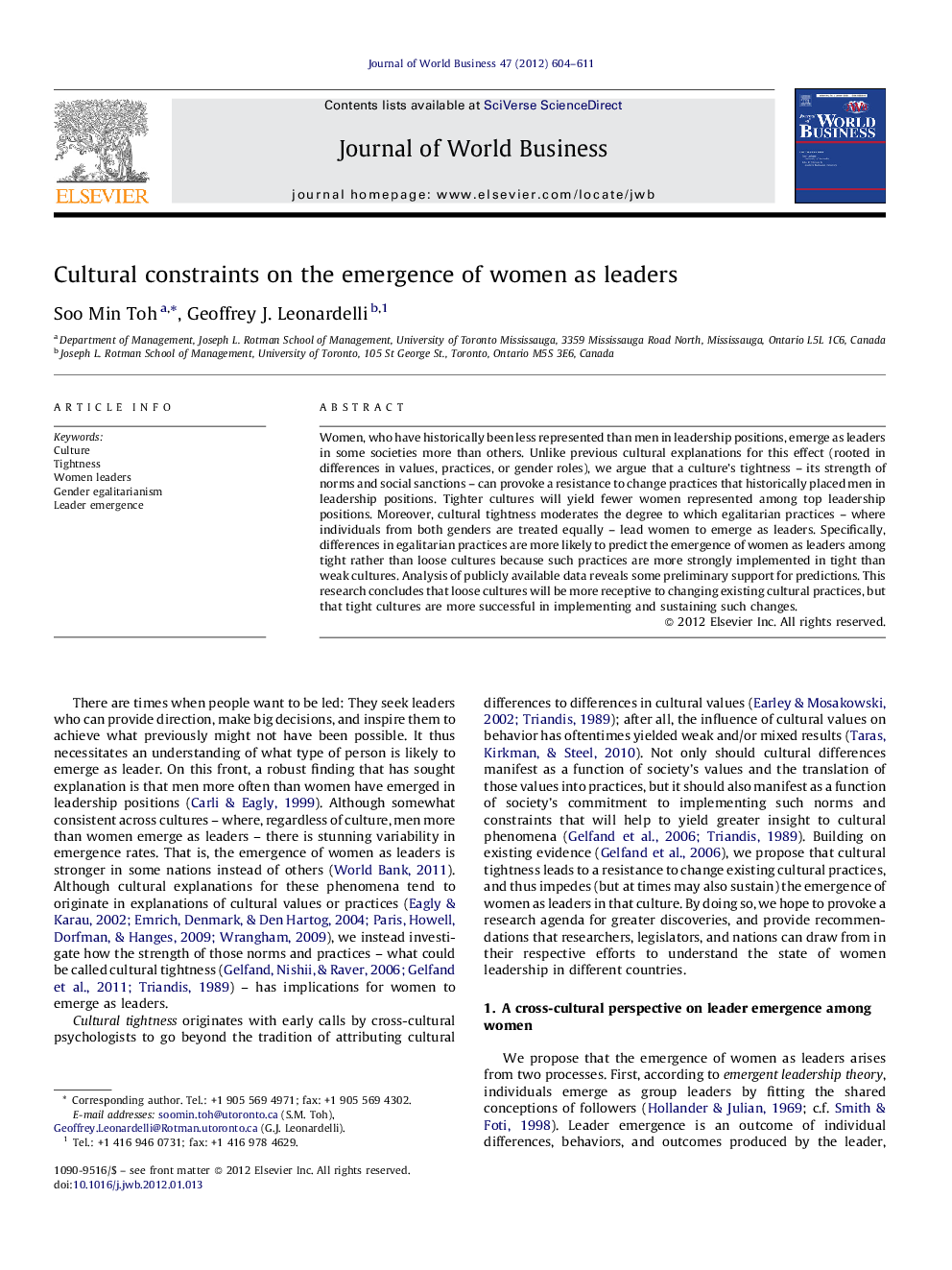| Article ID | Journal | Published Year | Pages | File Type |
|---|---|---|---|---|
| 1001547 | Journal of World Business | 2012 | 8 Pages |
Women, who have historically been less represented than men in leadership positions, emerge as leaders in some societies more than others. Unlike previous cultural explanations for this effect (rooted in differences in values, practices, or gender roles), we argue that a culture's tightness – its strength of norms and social sanctions – can provoke a resistance to change practices that historically placed men in leadership positions. Tighter cultures will yield fewer women represented among top leadership positions. Moreover, cultural tightness moderates the degree to which egalitarian practices – where individuals from both genders are treated equally – lead women to emerge as leaders. Specifically, differences in egalitarian practices are more likely to predict the emergence of women as leaders among tight rather than loose cultures because such practices are more strongly implemented in tight than weak cultures. Analysis of publicly available data reveals some preliminary support for predictions. This research concludes that loose cultures will be more receptive to changing existing cultural practices, but that tight cultures are more successful in implementing and sustaining such changes.
